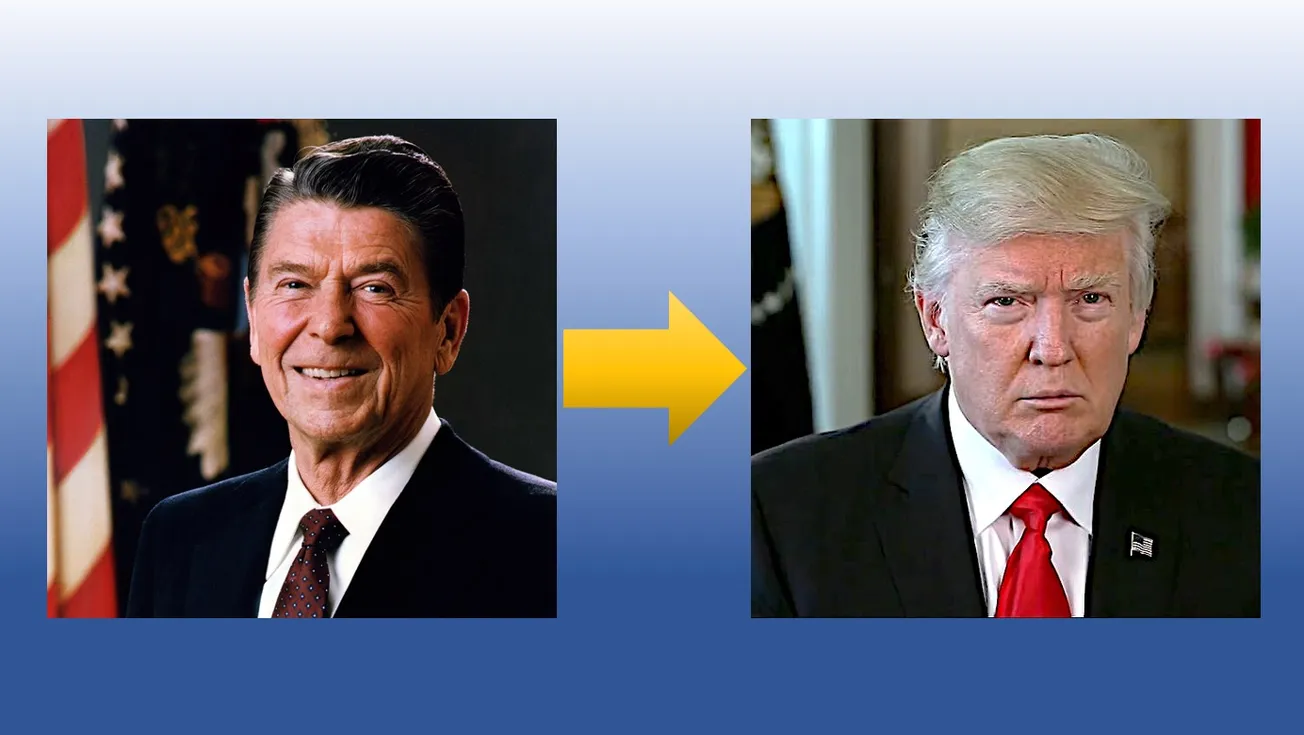While Donald Trump leads the GOP deeper into the fever swamps of semi-fascism/Christian nationalism, Ronald Reagan is getting a break, sort of, from some on the left.
It goes like this: The Gipper wasn’t so bad compared to The Donald.
Historian and author John Hennen’s politics tack toward the port side. So do mine. But he’s not among the Reagan revisionists. Neither am I.
“Today’s fetishizing of racism, mob violence, and ‘local control,’ which has turned Reagan’s party into a refuge for the absolute worst elements of America’s malcontents, was given momentum by the avuncular Great Communicator,” said Hennen, a retired Morehead State University history prof. “He okayed White supremacy as an acceptable ‘opinion,’ turning Richard Nixon’s earlier Southern Strategy into something understandable for the angry grievants who became Donald Trump’s ‘base.’”
In other words, Reaganism begat Trumpism.
“When Ronald Reagan delivered his famous ‘A Time for Choosing’ speech at the Republican convention in 1964, he instantly emerged as the leading voice for the rightward extremism that was taking over the party. Reagan presented a more congenial front for the GOP’s creeping anti-democratic norms than did the presidential nominee, Barry Goldwater.
“The Great Communicator refined his mean-spirited messaging by demonizing welfare recipients and antiwar and civil rights activists on California’s campuses during his two terms as governor – 1967-1975. He resurrected the states’ rights mantra of Southern segregationists in a 1980 campaign speech a stone’s throw from Philadelphia, Mississippi, the site of Klan murders of three civil rights volunteers in 1964.” (At the Neshoba County fairgrounds, Reagan told the white folks he was “for states’ rights,” the old Southern code word for slavery and Jim Crow segregation and disenfranchising African Americans.)
Hennen recalled when First Lady Rosalynn Carter said Reagan “makes us comfortable with our prejudices.” Five decades later, he said, “Donald Trump and the MAGA Republicans have made their cult-followers not only comfortable with their prejudices but proud of them.”
Between Reaganism and Trumpism came the Tea Party. It’s no coincidence, Hennen said, that the nearly all-white, far-right movement arose after the election of Obama, the first Black president. Obama “enflamed the ravings of the Tea Partiers — remember the death panels? — and amused ‘establishment’ Republicans who in 2011 welcomed the Tea Party neo-fascists into Congress, thinking they would be a controllable — and helpful — fringe caucus.”
The best-laid plans… “Turns out the genial Reagan, and later the loathsome bomb-thrower Newt Gingrich, had inspired a new organizing principle for young Republicans, which bore full fruit in the 2010 elections – don’t only hate your neighbors, but destroy them.”
Gingrich even devised a special vocabulary to dehumanize Democrats, said Hennen. Republicans were “never to refer to Democrats as loyal adversaries, but only in buzzwords such as anti-child, anti-flag, disgrace, shame, radical, pathetic, destroy, devour, traitors, and sick.”
He cited Esquire’s Charles Pierce who has written that the same sort of far-right extremists that Gingrich and Trump nurtured have always inhabited “the edges of American political madness.”
“American politics has often been an arena for angry minds,” historian Richard Hofstadter wrote in a 1964 Harper’s essay — the year Goldwater ran for president — titled “The Paranoid Style of American Politics.”
Hofstadter continued, “In recent years we have seen angry minds at work mainly among extreme right-wingers, who have now demonstrated in the Goldwater movement how much political leverage can be got out of the animosities and passions of a small minority.”
Goldwater lost in a landslide. But Reagan won the presidency in 1980 and again in 1984 promising to “make America great again" and laying the foundation for what Hennen called “the crazy MAGA-Trump cult.”
--30--








